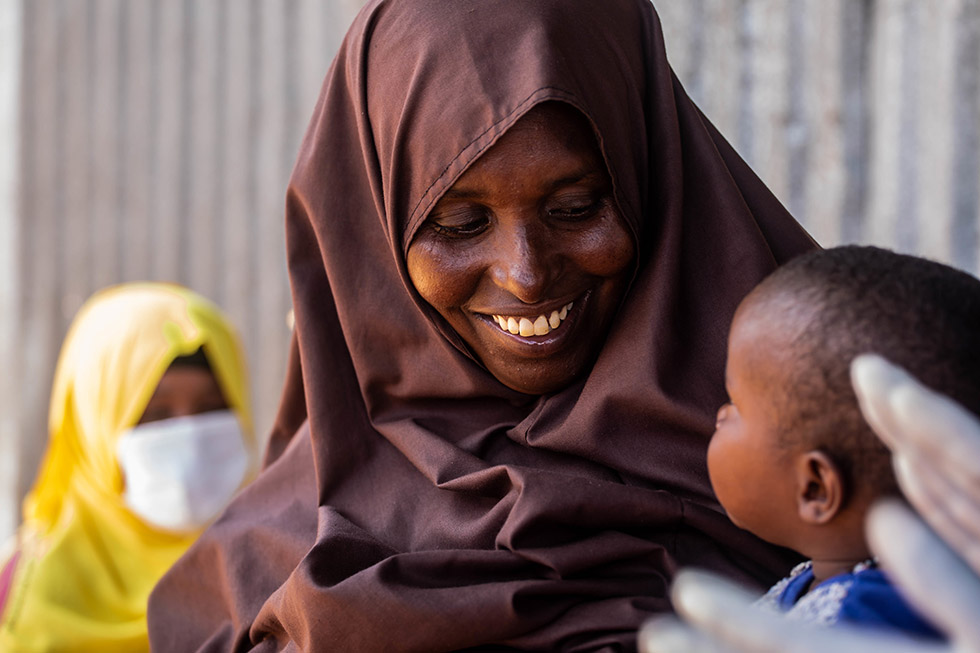
7 April 2025, Mogadishu, Somalia – World Health Day, observed annually on 7 April, marks the anniversary of WHO’s founding in 1948. Each year, the day highlights a pressing health issue affecting populations around the globe.
Healthy beginnings, hopeful futures, the World Health Organization’s (WHO) official theme for World Health Day 2025, focuses on improving maternal and newborn health and survival and addressing the urgent need for action to reduce maternal and neonatal mortality rates worldwide.
This World Health Day, WHO, in partnership with the United Nations Population Fund (UNFPA) and the United Nations Children’s Fund (UNICEF), is highlighting the need for coordinated action to protect the health and well-being of mothers and newborns in Somalia where the maternal mortality ratio, neonatal mortality rate and under-5 mortality rate are among the highest in the world.
Neonatal mortality accounts for 33% of under-5 mortality in Somalia, more than twice the global average. The 3 leading causes of neonatal mortality are birth asphyxia/trauma, prematurity, and sepsis. Inadequate, inaccessible, and poor-quality health services are associated with high rates of neonatal, child, and maternal mortality. In Somalia, access to skilled healthcare providers during childbirth is limited, with only 32% of births attended by trained professionals. The statistics underscore the urgent need for comprehensive integrated interventions to address preventable causes of maternal and neonatal deaths across the country.
Somalia is making substantial strides toward achieving universal health coverage through a national roadmap that aligns with its health policy. With support from the WHO and various partners, the emphasis is on strengthening the health system, particularly at the primary care level, to ensure that essential health services are accessible to all communities.
"The Federal Government of Somalia is committed to advancing universal health coverage through a robust national roadmap, aligned with our health policy. With the invaluable support of our partners, we are focused on strengthening our health systems, particularly at the primary care level, to ensure equitable access to essential health services for all Somalis" says H.E. Dr. Ali Haji Adam, Minister of Health.
“On this World Health Day, we reaffirm our commitment to ensuring that every mother and newborn in Somalia has access to quality, lifesaving health care. Maternal and newborn health is not just a health priority, it is a fundamental human right and a cornerstone of a strong, resilient health system. In a country where maternal and infant mortality rates are among the highest in the world, investing in skilled birth attendance, essential medicines and strengthened health care services is critical to saving lives. Together, we must work towards universal health coverage so that no mother or child is left behind," says WHO Representative in Somalia Dr Renee Van de Weerdt.
“On this special day, I would like to emphasize the urgent need to prioritise maternal and newborn health. Every mother deserves a safe pregnancy, and every newborn has the right to a healthy start in life. These are fundamental human rights, which we can strengthen by investing in stronger health systems and providing quality health care to every mother and child,” said UNICEF Representative Wafaa Saeed. “It is equally important that we continue to invest in trained and skilled health professionals who will help to prevent complications and save lives, especially in remote areas. Let us work together to ensure that no mother or child is left behind in the journey towards better health and well-being for all.”
"Ensuring safe pregnancy and childbirth is a fundamental human right. Too many mothers and newborns in Somalia are dying from preventable causes, and this must change. With a critically low midwife-to-population ratio of just 1.5 midwives per 10 000 people—far below the WHO-recommended 14 per 10 000—the country faces a severe shortage of skilled birth attendants. To bridge this gap and provide safe maternal and newborn care, an additional 20 000 midwives are urgently needed. Through our partnership with WHO and UNICEF, UNFPA remains committed to strengthening maternal and newborn healthcare by increasing access to skilled birth attendants, quality emergency obstetric care, and life-saving interventions. Strengthening these efforts will help turn the tide on maternal and neonatal mortality and give every mother and child a healthy start in life.“ Dr Mary Otieno, Representative a.i. UNFPA Somalia.
The adoption of a key resolution, Accelerate progress towards reducing maternal, newborn and child mortality in order to achieve Sustainable Development Goal targets 3.1 and 3.2, by the 77th World Health Assembly in May 2024 saw Somalia commit to reducing maternal, newborn and child mortality through the roll out of the Essential Package of Health Services and expansion of universal health coverage. Key priorities in addressing urgent health needs include:
expanding essential health care services with the active involvement of all stakeholders;
partnering with private health care providers to improve access to maternal, neonatal and child health services;
enhancing the quality of care by strengthening professional education and sustaining the health workforce; and
scaling up surveillance and response to maternal and perinatal deaths.
WHO, UNICEF and UNFPA Somalia urge global and local partners to unite to achieve these health goals and ensure a healthier future for mothers and newborns.
World Health Assembly 77th Resolution
World Health Day 2025: Healthy beginnings, hopeful futures
For additional information, please contact:
WHO: Myriam Haberecht, This e-mail address is being protected from spambots. You need JavaScript enabled to view it
Somalia Ministry of Health and Human Services: Mohamed Osman Dahir, This e-mail address is being protected from spambots. You need JavaScript enabled to view it
UNICEF: Victor Chinyama, This e-mail address is being protected from spambots. You need JavaScript enabled to view it
UNFPA: Felix Warentho, This e-mail address is being protected from spambots. You need JavaScript enabled to view it





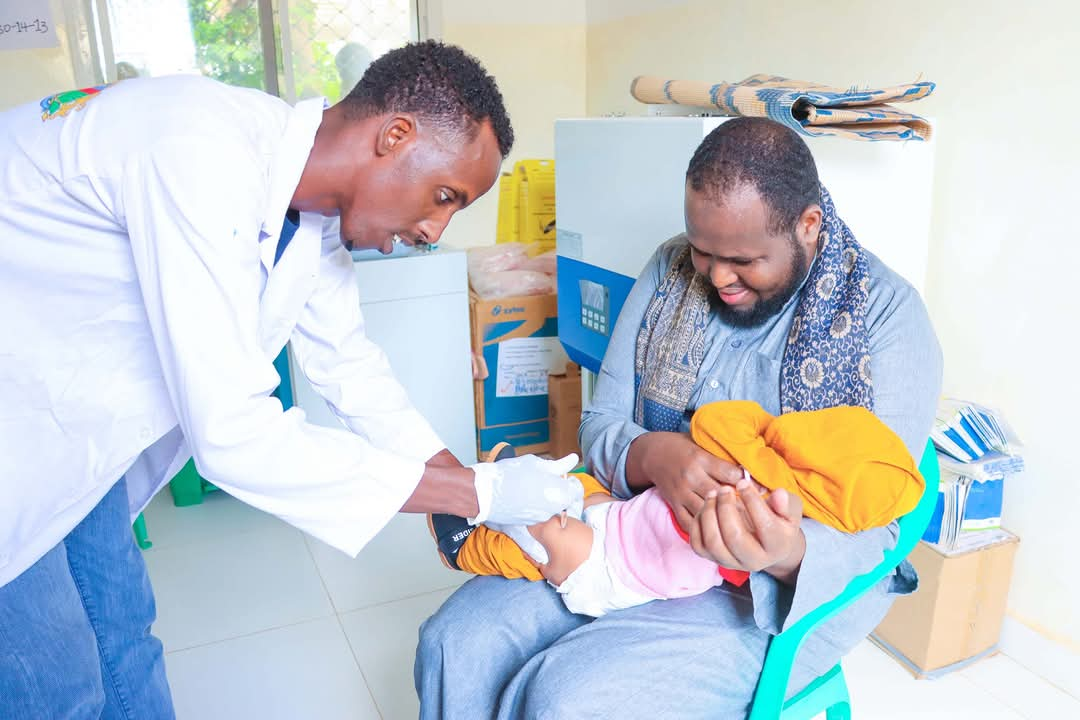
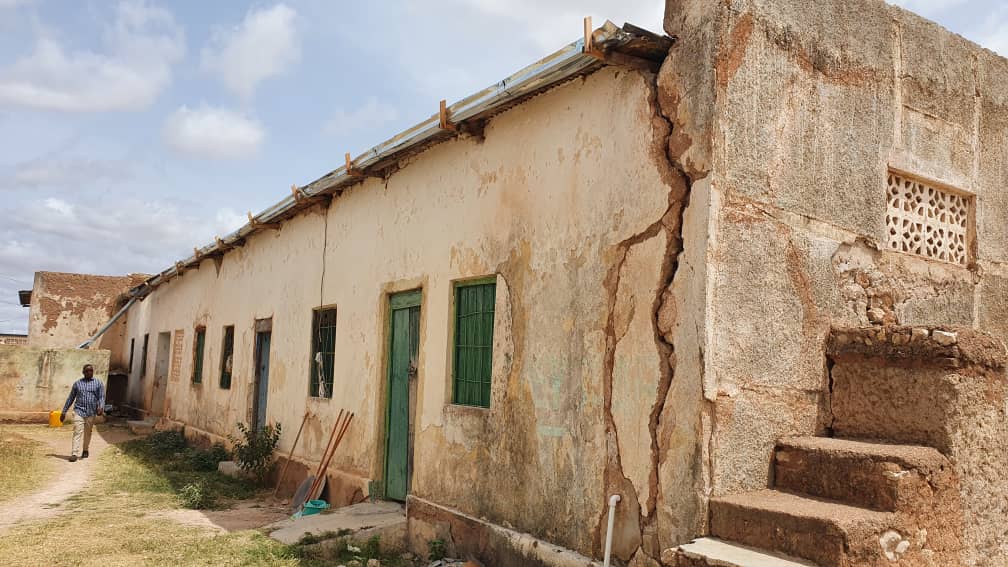
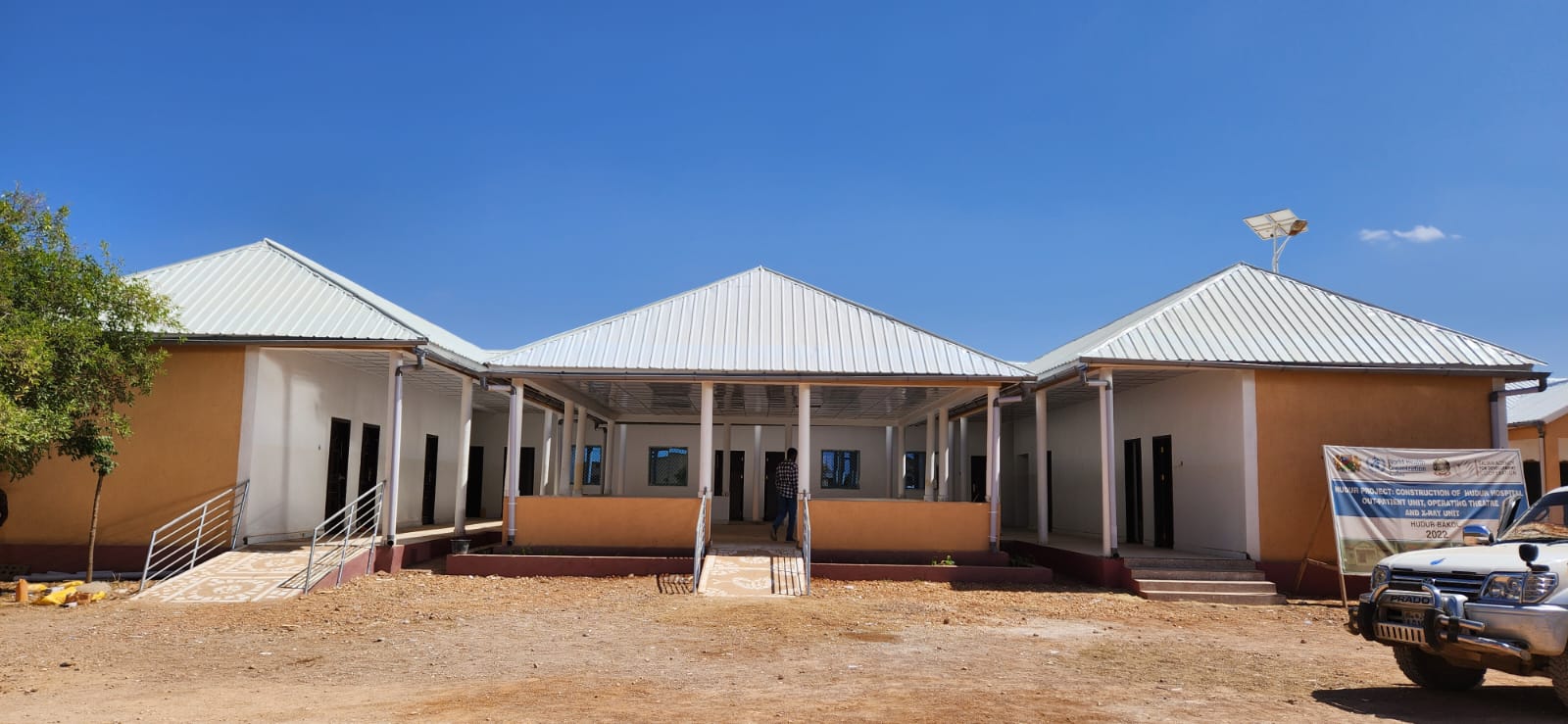
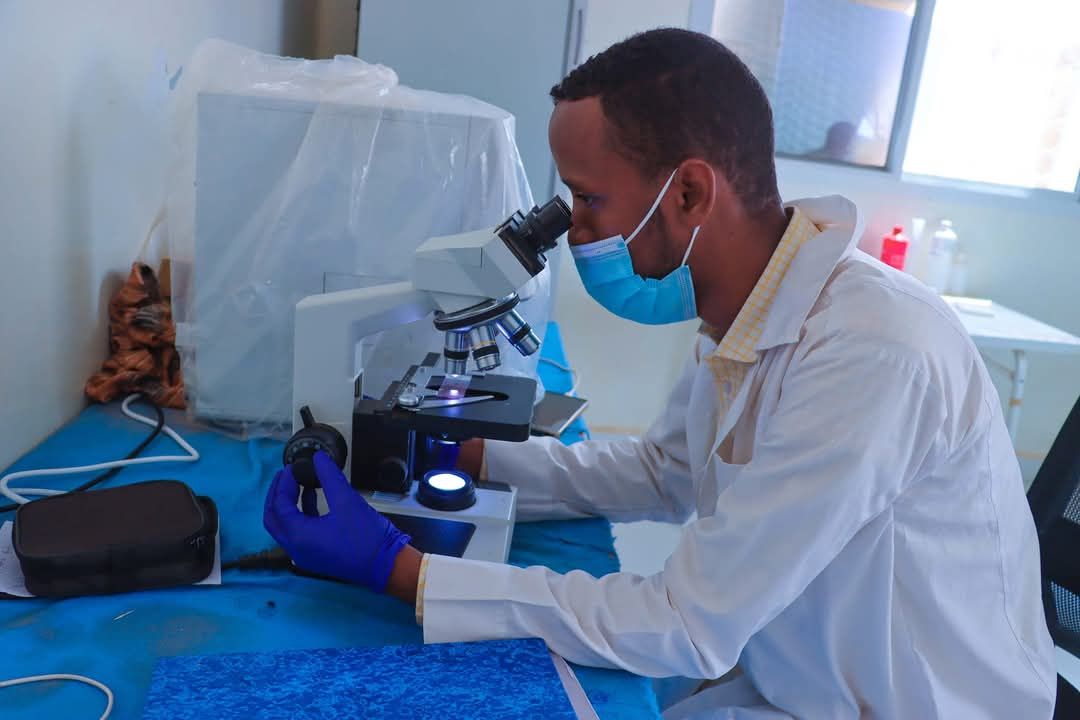
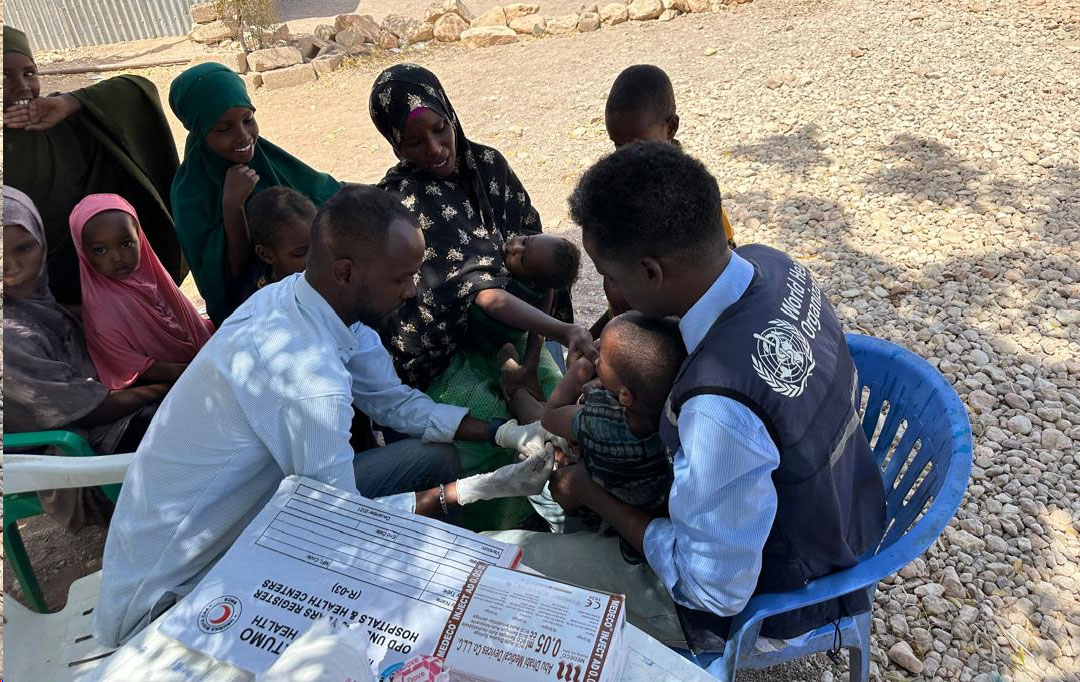 27 February 2025, Mogadishu, Somalia – On 13 February 2025, vaccination activities were launched in 4 districts of northern Somalia’s Sool region – Las Anod, Taleh, Hudun and Buuhoodle district– as part of The Big Catch-up initiative, an extended effort to lift vaccination levels among children to at least pre-COVID 19 pandemic levels.
27 February 2025, Mogadishu, Somalia – On 13 February 2025, vaccination activities were launched in 4 districts of northern Somalia’s Sool region – Las Anod, Taleh, Hudun and Buuhoodle district– as part of The Big Catch-up initiative, an extended effort to lift vaccination levels among children to at least pre-COVID 19 pandemic levels.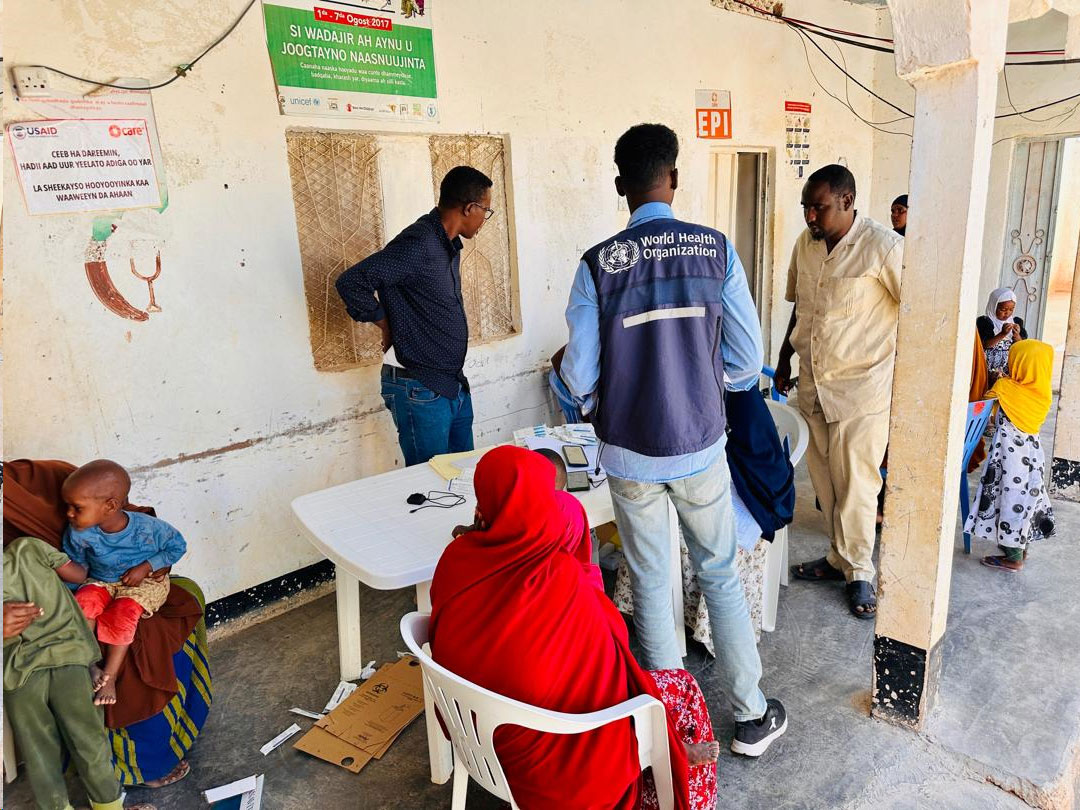 Safiya Ahmed Mohamed, who brought her daughter Umayma to a vaccination site in Las-Anod town, is among the mothers who benefited from the initiative. Born during the conflict in Las-Anod and surrounding areas, Umayma was unable to access vaccination services. Now, at the age of 20 months, she has finally received her first vaccine.
Safiya Ahmed Mohamed, who brought her daughter Umayma to a vaccination site in Las-Anod town, is among the mothers who benefited from the initiative. Born during the conflict in Las-Anod and surrounding areas, Umayma was unable to access vaccination services. Now, at the age of 20 months, she has finally received her first vaccine.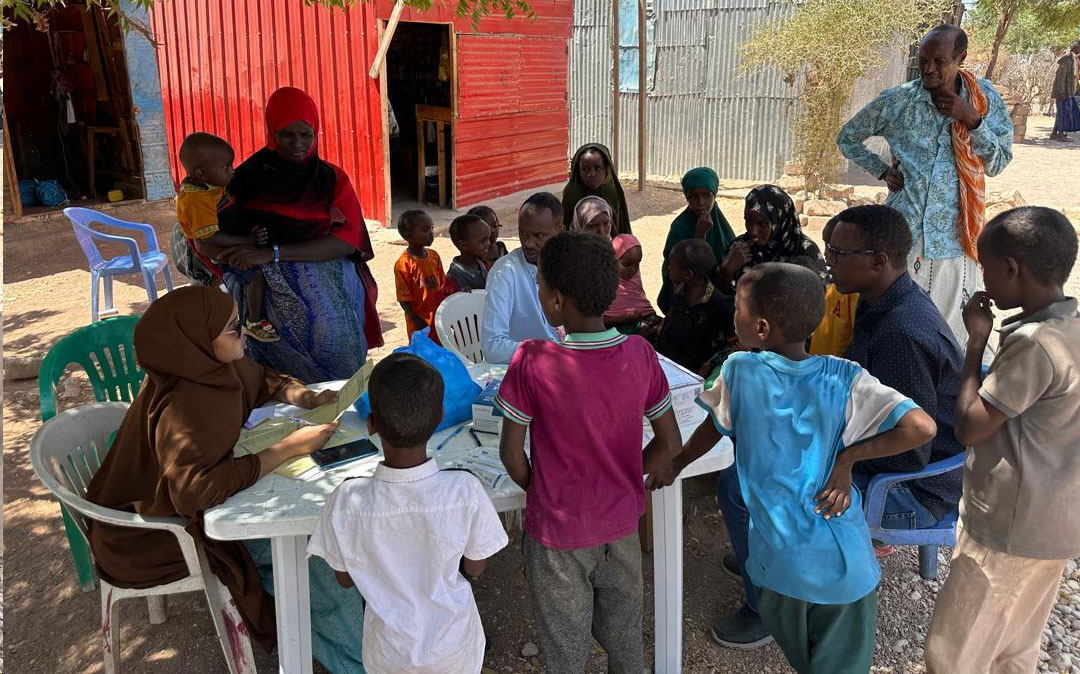 “The Big Catch-Up campaign lasted 7 intensive days in one of the areas with the highest need for vaccines. Many children here missed out on routine immunizations, and some had never been vaccinated at all. We identified significant gaps, and our goal is to close them – ensuring that no child is left behind. This was the first Big Catch-Up drive conducted in the Sool region, following 2 successful polio campaigns. We are also working with our partners to restore routine immunization, and are planning a measles and PCV integrated campaign to reach children and communities still in need. We are grateful to the local community and our partners for their commitment to delivering life-saving vaccines to those who need them most,” said WHO Somalia’s Coordinator for Immunization and Vaccine Preventable Diseases Dr Gedi Mohamed.
“The Big Catch-Up campaign lasted 7 intensive days in one of the areas with the highest need for vaccines. Many children here missed out on routine immunizations, and some had never been vaccinated at all. We identified significant gaps, and our goal is to close them – ensuring that no child is left behind. This was the first Big Catch-Up drive conducted in the Sool region, following 2 successful polio campaigns. We are also working with our partners to restore routine immunization, and are planning a measles and PCV integrated campaign to reach children and communities still in need. We are grateful to the local community and our partners for their commitment to delivering life-saving vaccines to those who need them most,” said WHO Somalia’s Coordinator for Immunization and Vaccine Preventable Diseases Dr Gedi Mohamed.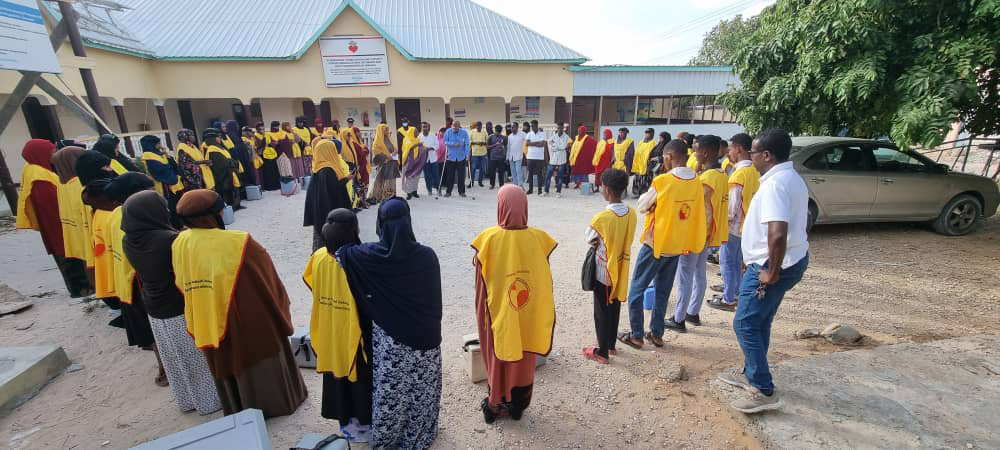
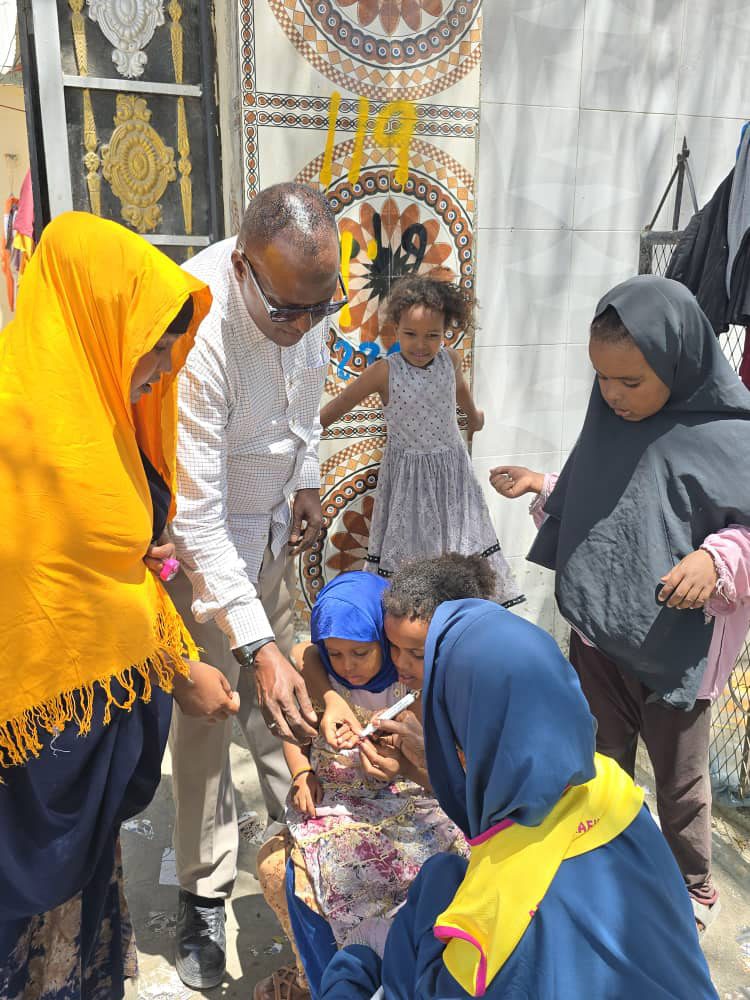 Somalia is one of the 7 “consequential geographies” identified by the Global Polio Eradication Initiative due to persistent polio outbreaks, fragile health systems and ongoing conflicts that hinder immunization efforts. Other high-risk regions include Afghanistan, Pakistan, Tete province in Mozambique, eastern Democratic Republic of Congo, northern Yemen and northern Nigeria.
Somalia is one of the 7 “consequential geographies” identified by the Global Polio Eradication Initiative due to persistent polio outbreaks, fragile health systems and ongoing conflicts that hinder immunization efforts. Other high-risk regions include Afghanistan, Pakistan, Tete province in Mozambique, eastern Democratic Republic of Congo, northern Yemen and northern Nigeria.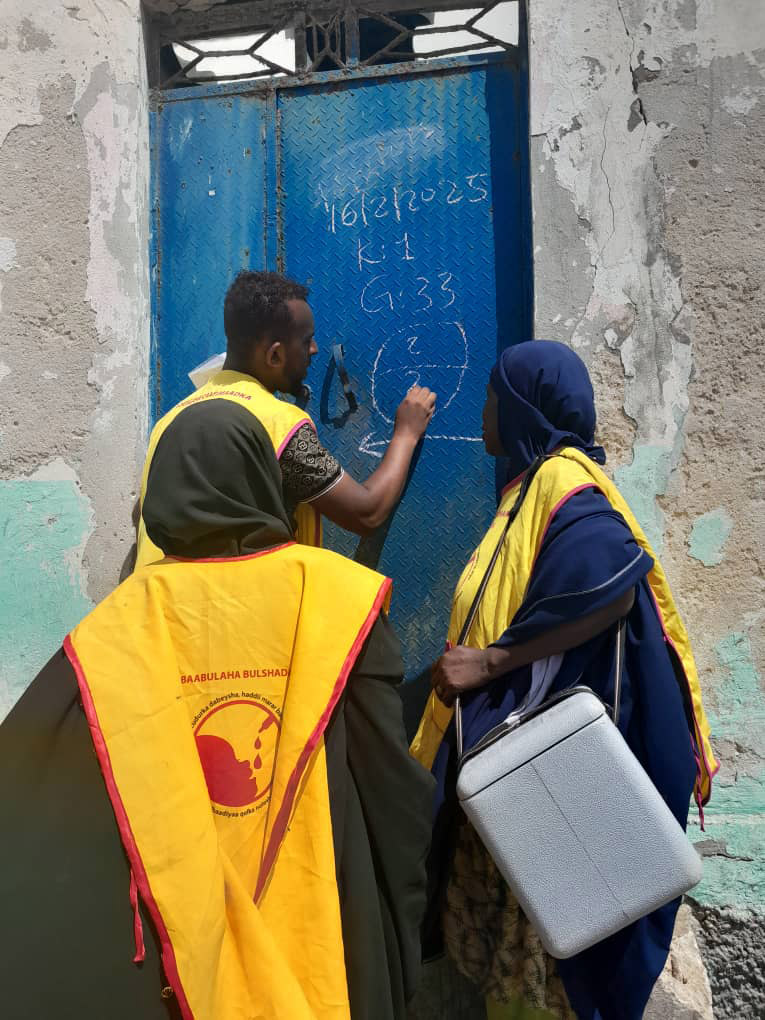 Last year, through routine immunization efforts and targeted polio vaccination campaigns, Somalia successfully reached 600 000 of the estimated 1.5 million children who have not received a single dose of any vaccine. This campaign builds on that progress while reinforcing the government’s broader commitment to child survival.
Last year, through routine immunization efforts and targeted polio vaccination campaigns, Somalia successfully reached 600 000 of the estimated 1.5 million children who have not received a single dose of any vaccine. This campaign builds on that progress while reinforcing the government’s broader commitment to child survival.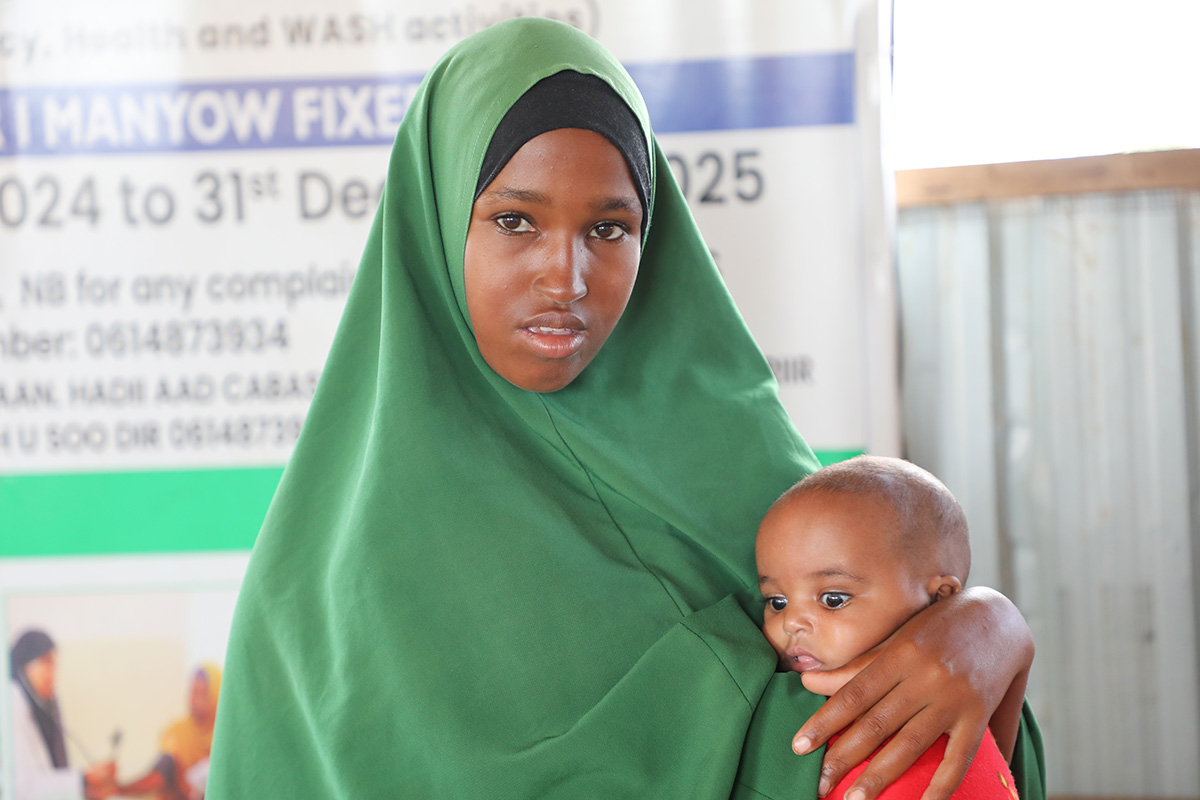 6 February 2025 – Mothers play a critical role in keeping their children safe from diseases outbreaks, especially when it comes to vaccine-preventable diseases. In Somalia, where life can be tough, mothers have always worked hard to protect their families. This is even more challenging for those living in remote areas with little access to health care.
6 February 2025 – Mothers play a critical role in keeping their children safe from diseases outbreaks, especially when it comes to vaccine-preventable diseases. In Somalia, where life can be tough, mothers have always worked hard to protect their families. This is even more challenging for those living in remote areas with little access to health care.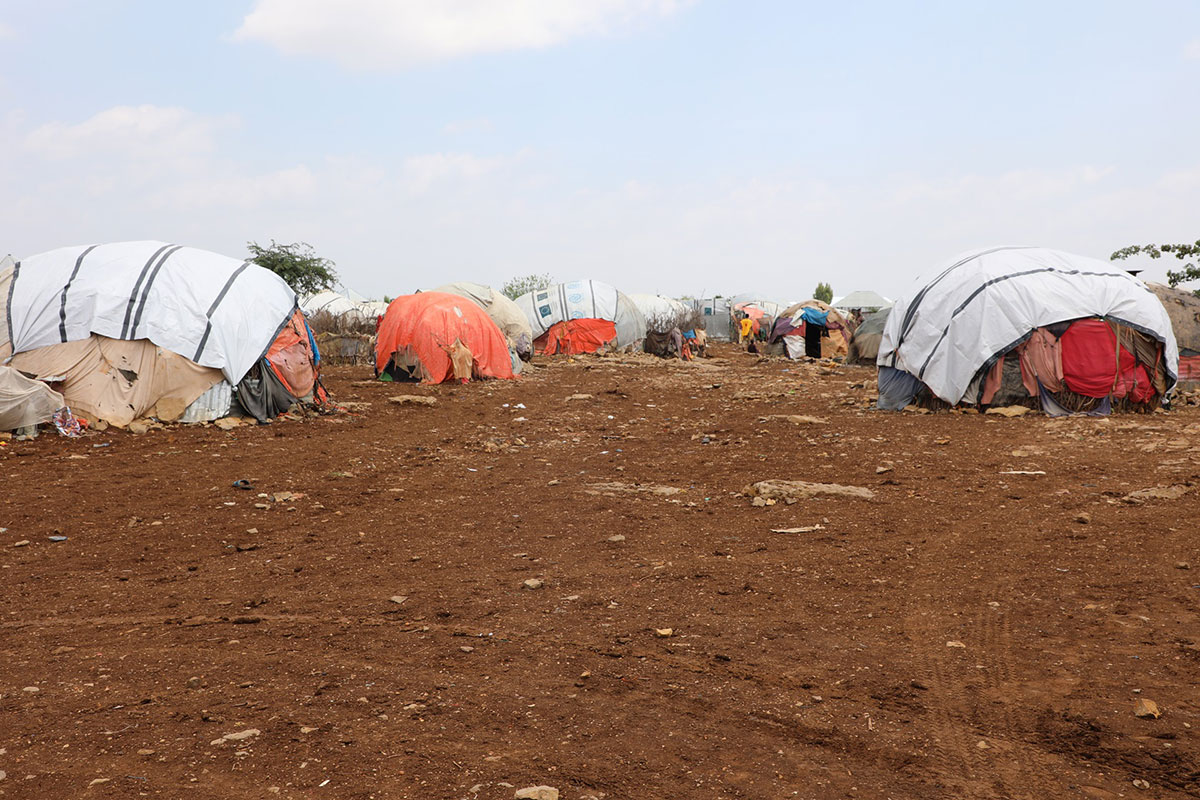 When Layla and her son Abdulaziz arrived in Baidoa, they stayed with her extended family members at the Moqor-manyow camp for internally displaced people. The camp is home to thousands of people displaced by droughts and conflicts in South West State. Just two days after their arrival, The Big Catch-up vaccination initiative started. Layla took Abdulaziz to an outreach site at the camp to get him vaccinated for the first time since he was born. It was there that we had the opportunity to meet Layla and hear her story.
When Layla and her son Abdulaziz arrived in Baidoa, they stayed with her extended family members at the Moqor-manyow camp for internally displaced people. The camp is home to thousands of people displaced by droughts and conflicts in South West State. Just two days after their arrival, The Big Catch-up vaccination initiative started. Layla took Abdulaziz to an outreach site at the camp to get him vaccinated for the first time since he was born. It was there that we had the opportunity to meet Layla and hear her story.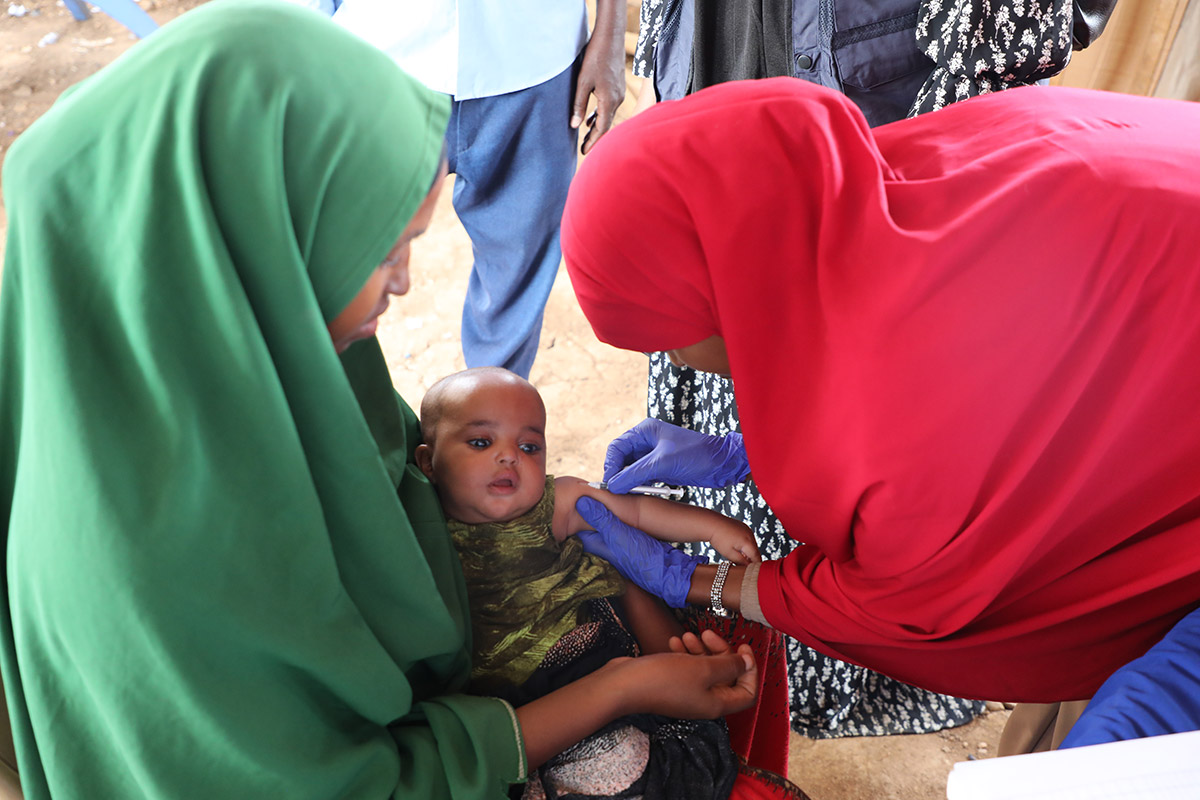 To enhance routine immunization for children, Somalia’s Ministry of Health launched The Big Catch-up on 18 July 2024, as part of a global initiative to boost vaccination among children following declines driven by the COVID-19 pandemic. To implement the initiative, the Somali government is partnering with Gavi, the Vaccine Alliance, the United Nations Children’s Fund (UNICEF), the World Health Organization (WHO) and others.
To enhance routine immunization for children, Somalia’s Ministry of Health launched The Big Catch-up on 18 July 2024, as part of a global initiative to boost vaccination among children following declines driven by the COVID-19 pandemic. To implement the initiative, the Somali government is partnering with Gavi, the Vaccine Alliance, the United Nations Children’s Fund (UNICEF), the World Health Organization (WHO) and others.